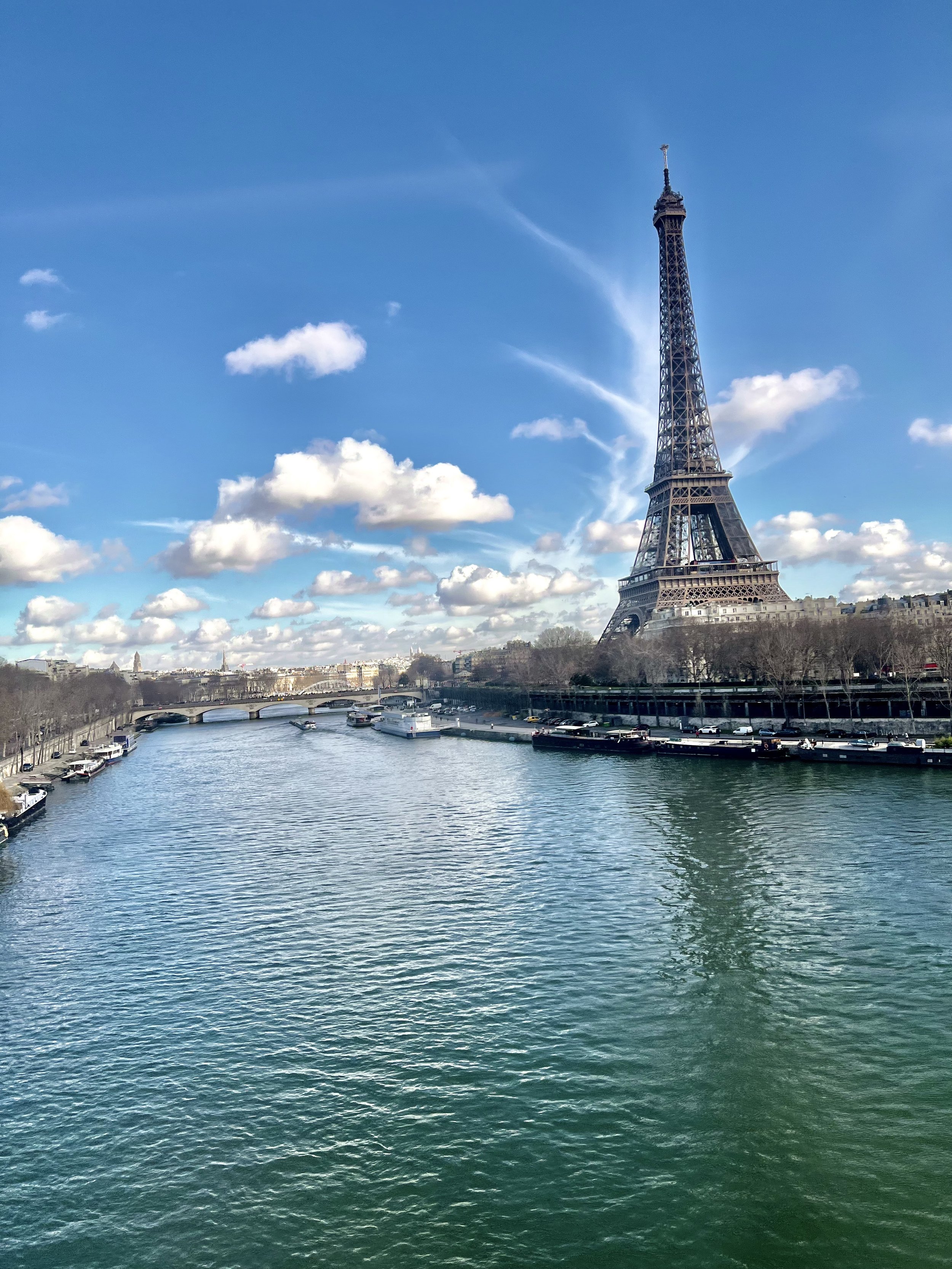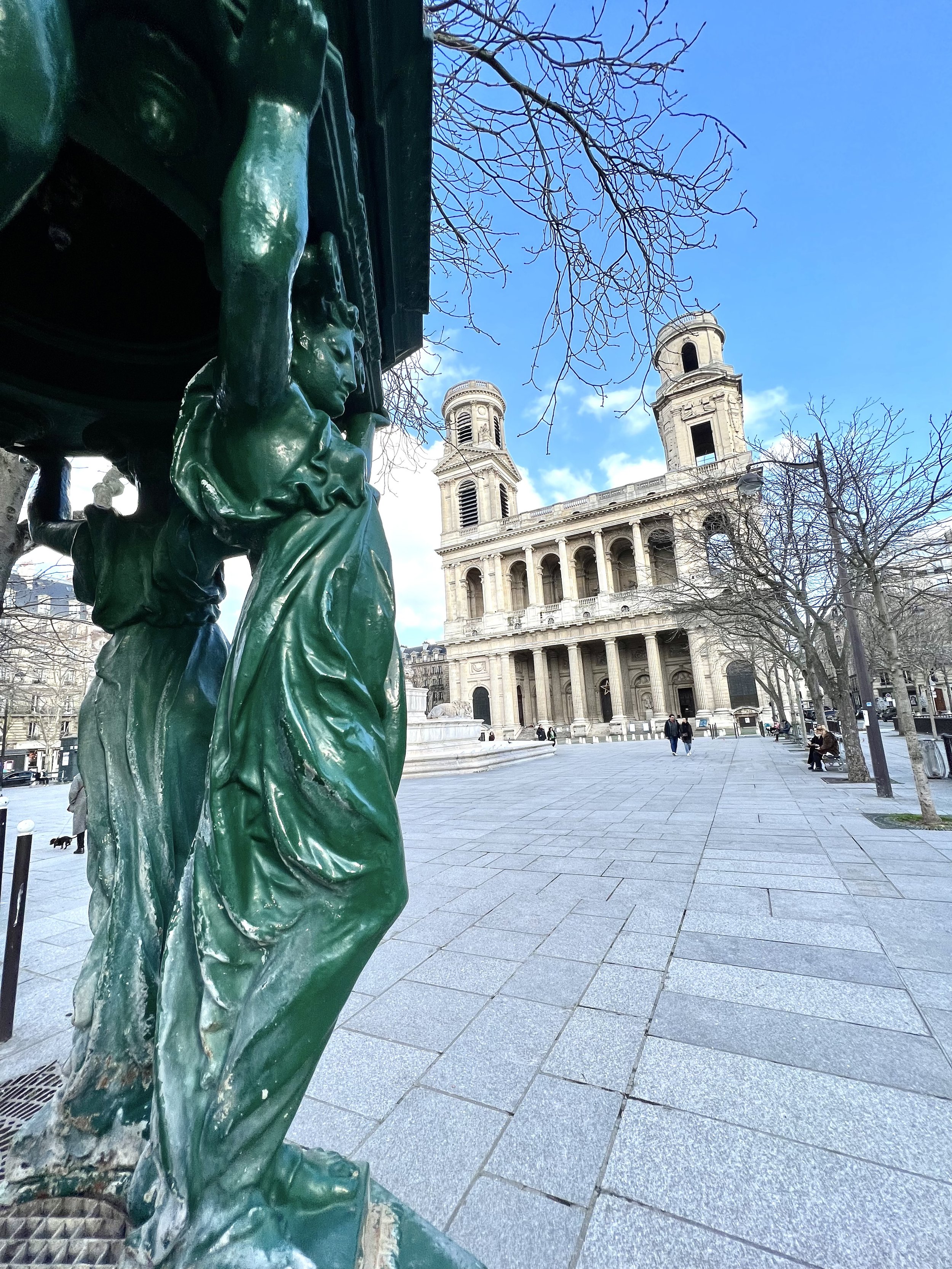William & Paris
I have never been terribly good at the sort of self-reflection required for an eloquent memoir essay. I might have a thought or insight that seems to be worth sharing, but writing it down always weakens it somehow. Maybe my prob is that I’m not a skilled-enough writer. There’s a line in one of my favorite songs, Dawes’ “Most People,” that, ironically, conveys this feeling perfectly:
By the time that she explains to me
Just a glimpse of what she’s understood
She betrays the meaning putting it in words
And yet, here I sit, trying to put in words what it has meant to me to do something that certainly isn’t lacking for clichés — studying abroad in Paris, the most clichéd city of all clichéd cities. So much ink has been spilled in odes to this city that the overwhelming sense of disappointment some feel when faced with the reality of it has been called “Paris Syndrome” (associated with psychosomatic symptoms like dizziness and vomiting as well as psychiatric symptoms like hallucinations, anxiety, and intense feelings of persecution).
So, how does one avoid being “The Girl Whose Whole Personality Revolves Around Studying Abroad in Paris” while still offering an honest reflection on the experience?
MARY TRIMBLE // FLAT HAT MAGAZINE
Maybe one doesn’t, and if you find that to be so, dear reader, then just flip to the next article where someone will certainly be writing about something far more unique than a study abroad experience in Paris. In the space that follows — if you’re still reading — I hope to strike a balance between purveyor of superficial clichés à la “Emily in Paris” or “Gossip Girl” and absolute killjoy who argues (inaccurately) that Paris isn’t what it’s cracked up to be.
The reality is, as it always is, somewhere in between.
Some of the difficult parts of this experience are those which no one — not Blair Waldorf nor Emily Cooper — could have prepared me for. I’ve been surprised by the occasional loneliness, for one. I’m a deeply introverted person, so even the notion of loneliness has sometimes struck me as overblown. I like being by myself, depending on myself, being free to go where and when I please, and I often find the process of making friends fairly daunting. Eight times out of ten, I have relished the impersonal anonymity of a bustling, cosmopolitan city of over two million.
MARY TRIMBLE // FLAT HAT MAGAZINE
The other 20% of the time, it can be isolating and overwhelming. Eating dinner in restaurants by myself was (and still is, occasionally) a major hang-up of mine for reasons that pass my understanding. Lunch — that I can do. But alas, when I’ve been out and about and dinner time rolls around, I’d rather trek back to my apartment and make it myself than brave a meal in my own company surrounded by strangers enjoying their friends and loved ones.
However, all this solitude has, I think, helped me grow. Spending more time alone with my thoughts has made me more thoughtful as I can reflect without the normal firehose of coursework and activities that are ever-present during a semester in the ‘Burg. Living alone has, ultimately, made me more adventurous and more willing to try things by myself — museums galore, solo trips to other nearby cities, or simply wandering aimlessly. I have become more willing to strike up conversations with the staff at the cafés where I’m now a regular, and I often feel joy at the flash of recognition that crosses their faces when they see me walk in and say, not “Hello and welcome,” but instead, “Hi, how are you?” and “See you soon!” when I leave. In this solitude, I’ve found greater appreciation for small, everyday human connections that might otherwise pass unnoticed and for the friends and loved ones I have back at home.
Finding these moments adds sweetness to my aimless wandering around the city, especially at the Rive Gauche or Left Bank of the Seine on the south side of the city. There’s almost no city better for it than this one. Known as an intellectual hub, Paris is home to universities as old as the city itself, full of warm tan stone buildings that glimmer when they catch the evening light as the sun goes down as well as bookstores, antique stores, and flower shops.
What I love about wandering here is that you can stumble across a major historical landmark entirely without meaning to or even realizing it until later when you have a chance to really think about why there were armed guards in front of one random house near your office, only to realize that it was the prime minister’s residence. The age, charm, and tradition of this city are not so well captured in the Louvre and the Eiffel Tower as they are in the days spent discovering its beauty by accident in the small rues and innumerous old churches where you might find a choir singing or someone practicing on the two-hundred-year-old organ.
To expand my wandering and get out of the city for a bit, I booked a trip to a nearby town one day to explore some of the fabled romantic and picturesque French countryside — les provinces (the provinces) — the term Parisians use to describe literally any place that is not Paris. I was looking forward to a day of quiet meandering through a quaint town; travel blogs advertised the experience as hours of walking through winding streets full of brightly painted, wood-framed houses and a boat tour through a neighborhood built entirely on canals.
What I discovered instead was a standard European city center with shopping streets full of Mango, H&M, and Zara, two blocks of admittedly beautiful houses, and, indeed, a neighborhood on canals that were, however, only accessible by private boat because the tours didn’t open for another month. There really wasn’t much more to it.
I was disappointed by my unmet expectations and was tempted to consider the day a waste. But on the train ride home, I reminded myself that I had seen a new place even if it didn’t bowl me over with the advertised idyllic charm. I had spent a lovely day outside in a very lively and pretty public park, and I had learned that A.) even as good as my French has become, I had trouble with non-Parisian accents, and B.) you should really make sure your portable power bank is charged before you leave for a day, lest you have to pay 25 euros for a charger (and the price of a coffee) to have a very nice waiter charge your phone behind the bar.
With these lessons in mind, I also vowed to be more truthful in my recommendation than the travel blog I so naively followed, should anyone ask whether this particular town was my top choice for a day trip out of the city.
A family friend who lives in Paris told me when I arrived that “Paris is a big, dirty city. It’s also magical. If you can live with and accept those two realities, then you’ll love it here.” It’s the best advice I could have been given (although I would have also been satisfied with a word about charging one’s portable power bank). It’s the kind of advice that frees you up not to love every second of every experience. Sometimes, you look up from the Maps app to discover the tip of the Eiffel Tower peeking out over an ornate, classically haussmannien building framed by perfect Monet-esque clouds. Sometimes, you step in dog poop. Sometimes, you do both at once.
Nothing is ever the perfect dream we want or expect it to be, nor is it ever a total repudiation of it. This advice is good for all time-zones because I’m discovering that life, too, is a big, dirty city with pockets of magic. In Paris, as in life, one must take the good with the bad and enjoy the good all the more for sweetening the bad, and the bad must be appreciated for the freedom and gratitude it gives us to enjoy all the good we might otherwise miss.
One of the great joys of living here has been one that I’m sure isn’t unique to me, or to Paris, or even to study abroad experiences in general. Getting to know this city — discovering neighborhoods I like, being able to navigate the metro without a map, finding a new favorite restaurant, or stumbling across a new store with clothes that are just my style — has helped me feel at home here and like I really do live here, that I’m not only observing the magic of this place but also am a participant in it.
This sentiment is not necessarily revelatory if you’re someone who has lived in the same place your whole life or who has a place that they can, without hesitation, call home — a place where you know all the street names and know where to find the best coffee around. Having moved around a lot as a kid, always accompanied by my parents, it was rare that I felt a real ownership of the places I lived. Being able to show my family around when they have come to visit has made this place feel like mine — even if only for a short time.
MARY TRIMBLE // FLAT HAT MAGAZINE
Somehow, I only have two months until my séjour parisien is over (everyone told me it would fly by, but I didn’t believe them). I’ll take with me more souvenirs than will fit in my two suitcases, and something perhaps more valuable: the knowledge that life will not always give you Paris Syndrome, nor will it always be a travel blog or a montage in “Emily in Paris.”
Sometimes, life is just life. Unremarkable, until you lose the protective cushion of your comfort zone and encounter loneliness or unfamiliar surroundings. It is only once you’re faced with that discomfort that life becomes fully discoverable, and that the good can be fully taken with the bad and made richer for it.



